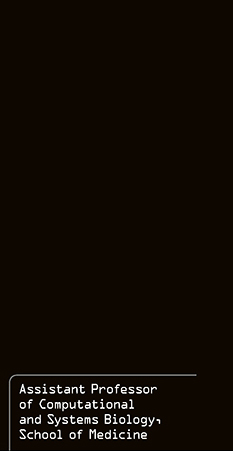Topic Overview:
Carvunis will present a mysterious evolutionary phenomenon whereby mutations in nongenic sequences give rise to novel, species-specific, protein-coding genes: de novo gene birth. All sequenced genomes contain species-specific, protein-coding genes. These genes lack homologues in other species or lineages and are thought to drive species-specific adaptations. Early models posited that de novo gene birth may occur when nongenic sequences become transcribed, acquire open reading frames, and the corresponding nongenic transcripts access the translation machinery. However, biochemistry predicts that the polypeptides resulting from such translation events should predominantly be physiologically insignificant. How could the translation of junk DNA drive species-specific adaptations? To resolve this conundrum, Carvunis formalized a model according to which the translation of nongenic transcripts does not systematically produce de novo genes but rather transitory “proto-genes.” These proto-genes would provide the organism with adaptive potential by exposing genetic variations that are usually hidden in nongenic sequences. The majority would likely return to a nongenic state, but a subset may evolve into de novo genes, for instance, if their expression is beneficial to the organism. Carvunis will present evidence supporting this evolutionary model and discuss how these findings are changing our understanding of what genes are, what cells are made of, and what makes each species unique.





























